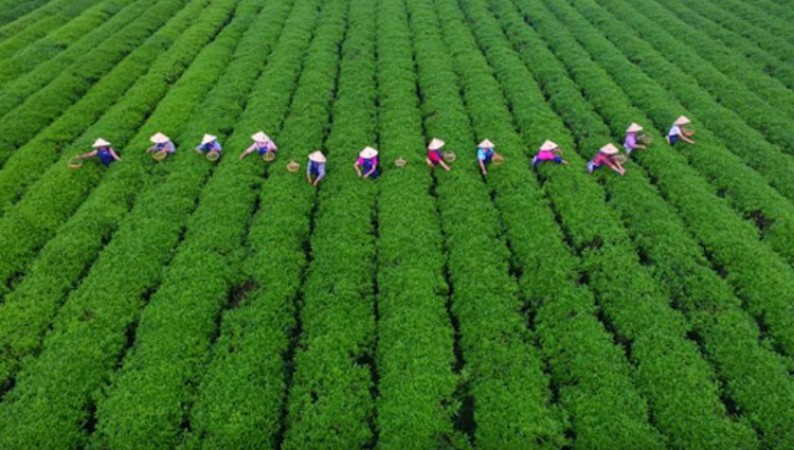
China: China published a list of 276 state-supported breeders, including dozens that will help the country develop a stronger and more independent seed industry, as part of its growing pressure toward agricultural self-sufficiency .
The action is in line with Beijing's efforts to increase the country's food supply for more than 1.4 billion people, an effort that was prioritized two years ago as a result of the effects of the pandemic and trade disputes with other countries.
Additionally, concerns about a global food crisis have risen in light of Russia's invasion of Ukraine and crop damage caused by extreme weather. The ban on some food exports from Taiwan as a result of recent tensions in the Taiwan Strait puts additional pressure on trade.
According to the Ministry of Agriculture and Rural Affairs, the new "National Seed Industry Formation" list includes 121 companies in aquaculture, 86 companies in the livestock and poultry sector, and 69 breeding companies and institutions in the crop sector.
We must work to establish a group of leading companies in the seed industry to realize the transformation from a large country to a strong country, the ministry said in a statement on Monday after the publication of the list on Thursday.
The ministry said all listed businesses should be treated as "key subjects" which need to be supported by agriculture authorities across the country. As a result, they must acquire a sufficient amount of resources, technology, talent and capital to foster innovation and increase the level of competition on a global scale.
Longping Hi-Tech Agriculture, Syngenta Group China, and Beijing Debinong Technology are some of the notable businesses on the list.
As China attempts to rely more heavily on domestic food production in a changing global environment, policymakers have identified seed and arable land as the two most important resources needed to feed the country due to their limited agricultural resources. .
The official People's Daily said in an online commentary on Monday that the development of China's seed industry is still beset by a number of issues, including insufficient protection and use of [genetic material] resources (such as seeds), low levels of reproduction, and low levels of reproduction. innovation, weak competition from seed companies and the market environment that urgently needs to be adapted.
The party's official spokesman claimed that the new list is a component of a "systematic program" to assist in the development of a national group of seed businesses. In addition, it emphasized that "focusing our efforts on key issues ... how important it is to protect China's food security with Chinese seeds."
Beijing expanded its list of state-sponsored seed breeding and production bases in April for the first time since 2013, in an effort to "revive" the seed industry. The full details of the approved action plan, however, have not been made public yet.
The government enlisted firms to help "bridging the gap" to reach "advanced overseas levels" on seeds for important crops such as corn, soybeans, cotton and potatoes, as well as improve domestic pig, cattle and sheep breeding. is also planning. ,
The government will also strengthen intellectual property protection and regulations and create "one-to-one" interaction mechanisms with important businesses.
According to analysts at Goldman Sachs, China is finally reducing its dependence on imports as a result of adopting cutting-edge practices for precision farming, animal health management and seed breeding.
In a report released on Monday, he said that "seeds are the foundation of agriculture and play an important role in ensuring China's long-term food security."
China cancellation of defense talks with the US
Chinese mother calls out "poor" bike-riding teacher saying he makes studying appear pointless
Military tensions between Beijing, Washington causing serious implications for Russia?